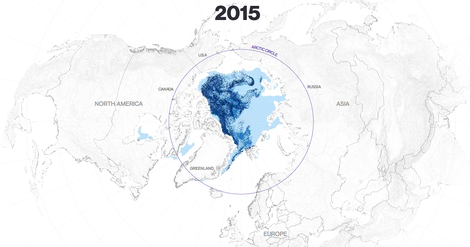Your podcast discovery platform
Curious minds select the most fascinating podcasts from around the world. Discover hand-piqd audio recommendations on your favorite topics.

piqer for: Climate and Environment Global finds
Elena is a journalist and communication specialist based in Como, Italy. She's regularly writing for local La Provincia and national La Stampa, focusing on energy, sustainability, and climate. She's a fixer for BBC Scotland in Italy, covering political, social and cultural issues. She holds a MA in Journalism and Media within Globalisation from Aarhus and Hamburg University.
Political Consequences Of Melting Ice In The Arctic
There is more going on with the Arctic that one could expect. In times of climate and environmental concerns about the Arctic, we sometime forget about the political consequences of melting ice in the very north of our planet. Thinking about both factors, environment and politics, could be a possible way to better understand how countries are acting towards the melting Arctic and future scenarios. What is happening in the Arctic Circle? What do data say about the current situation, also in comparison with the past? What is the role of powerful countries such as Russia?
First of all, a couple of facts about the Arctic (environmentally speaking), as explained in the article:
• October 2015 to September 2016, 3.5C warmer than early 1900.
• Winter 2016-2017 more than 20% below the average of “freezing-degree days”.
• Sea ice has declined more than science and models expected.
• By 2016, only 22% of Arctic ice is thick multi-year ice (was 45% back in 1985).
Besides the environment, we should also think about the political consequences of melting ice and the “rise” of new accessible resources. Some facts about the Arctic and countries’ roles:
• Eight countries control the Arctic: Russia (controls half of the population living in the Arctic, around 2 million people), the US, Canada, Denmark/Greenland, Iceland, Norway, Sweden, and Finland.
• Russia and China are investing in the Arctic.
• Russia is trying to take advantage of new shipping routes and oil deposits.
• Nations claim an “exclusive economic zone” in the Arctic.
The article, along with its graphics, data, pictures and models is an easy and clear way to “navigate” a complicated issue. A good read for putting environment and politics together.
Stay up to date – with a newsletter from your channel on Climate and Environment.

Excellent summary. Thanks!